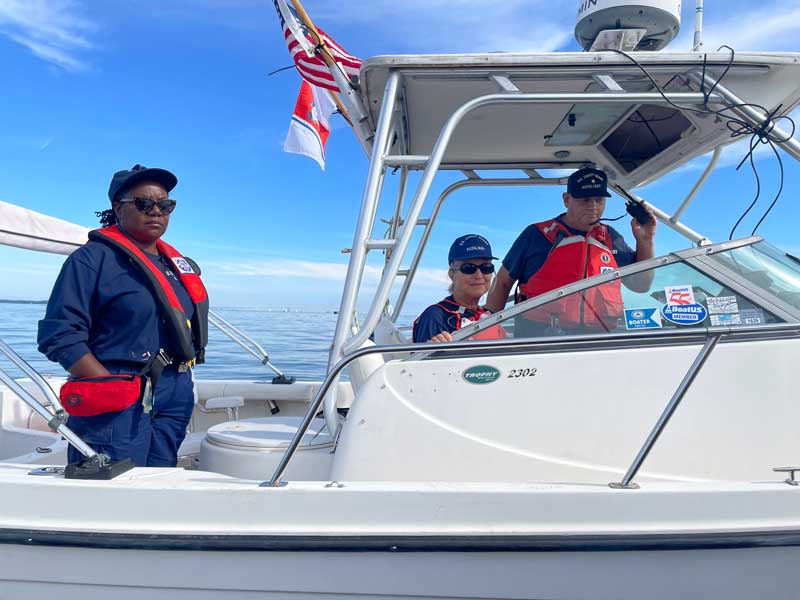Have you ever wondered about the role of the U.S. Coast Guard Auxiliary? The Auxiliary, which has been in existence for 82 years, has a mission to enhance recreational boating safety and education. Members contribute 3.8 million hours per year in support of the U.S. Coast Guard, including in the classroom, at the ramp and pier, and operating 1800 vessels, 160 aircraft, and 1400 radios.

Through the Auxiliary’s website, boaters can easily learn about the 22 boating safety classes they offer. They range from introductory courses to more specialized topics such as GPS, weather, seamanship, paddling, personal watercraft, weekend navigation, and radio operations. Courses for children begin with classes for kids as young as four years of age. Some courses are offered in Spanish.
The Auxiliary even offers a waterfowl hunting safety course designed for hunters who are not regular boaters. In fact, 70 percent of hunters who die in boating accidents fall overboard because of improperly loading the boat or having a hunting dog move around too much. A Coast Guard-produced waterfowl safe boating brochure is also available from the Coast Guard. Visit uscgboating.org.
In Annapolis, the local auxiliary has been busy with many events this fall according to Margaret Butler, Flotilla Commander. Auxiliarists were on the water to assist with safety for the Great Chesapeake Schooner Race and the Bay Bridge Paddle. On land, members have adopted a Sea Scout group. Sea Scouting is a program of the Boy Scouts of America and the official youth program of the U.S. Coast Guard Auxiliary. Auxiliarists conduct educational activities on topics such as knot tying, rescues, and maritime career options, especially a career in the Coast Guard.
On September 11, the Annapolis Auxiliary station participated with the Sea Scouts in a program called Safety at Sea, held at Curtis Bay in Baltimore. In addition to a 9/11 memorial observation, a Coast Guard helicopter conducted a hoist demonstration, and the event featured educational stations for proper flare use, boating safety, marine science, paddlecraft safety, person overboard exercises, and more. Learn more at cgaux.org/boatinged and for information on specific flotillas, visit cgaux.org.